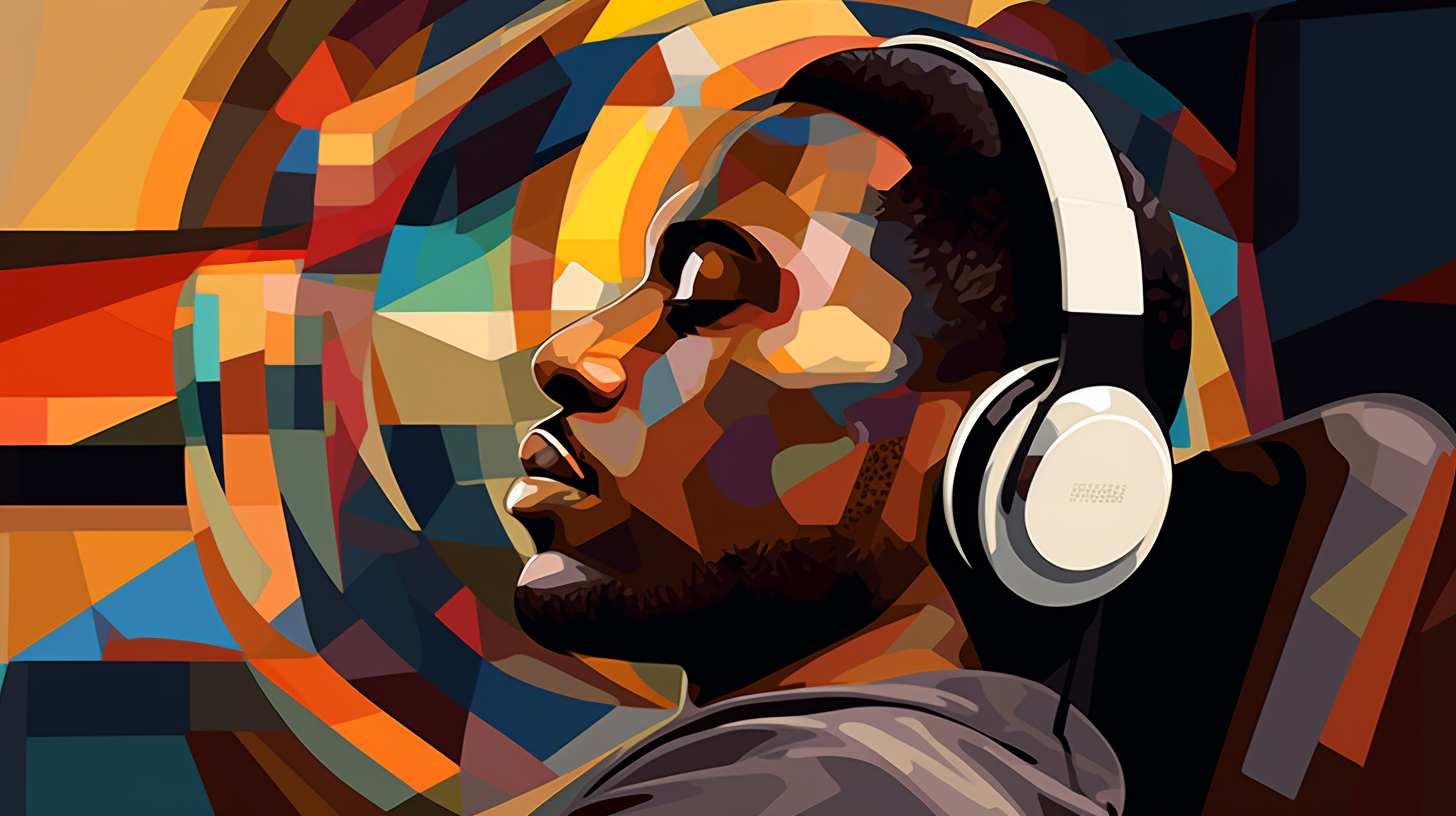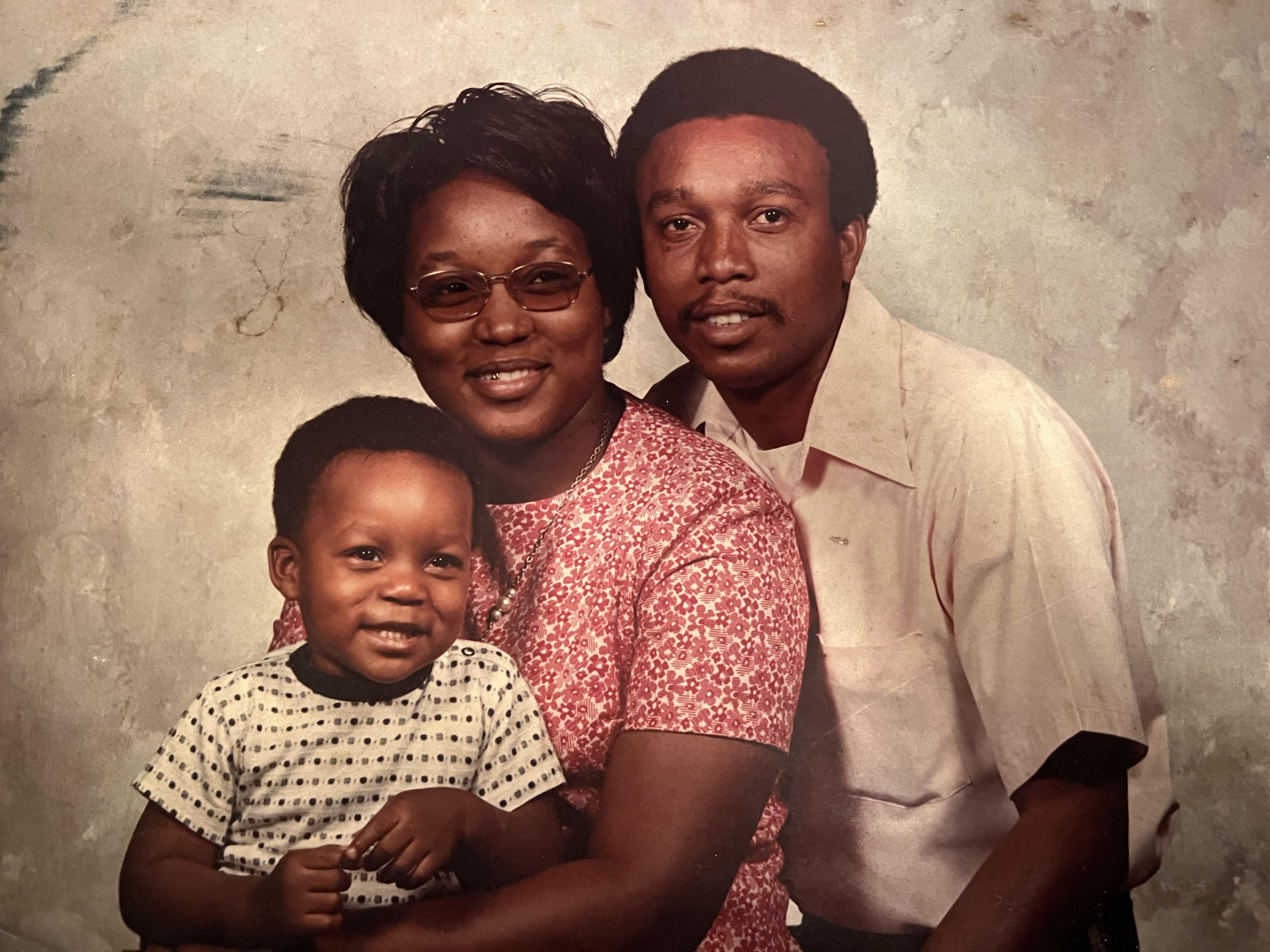
4 Techniques for Productivity While Listening to Audiobooks
These last few weeks I’ve been diving into audiobooks. I think I have listened to 8 or 9 books. Being a musician I leaned into that audio space to consume more content and it is working for me.
Here are a couple of tips if you want to get the most out of listening to audiobooks:
1. Take notes while listening
The best way to retain what you listen to is to take notes. That can be hard in the car while you are driving but I would find a way to take notes on your phone while you are listening to an audiobook.
2. Listen during commutes or exercise
The best time to listen to audiobooks is passively. If you are on the treadmill at the gym or if you are driving to work on the highway, these are times when you could be consuming audio content.
3. Use speed control to adjust playback speed
I was riding with my son and he was listening to an NPR podcast but the person was speaking really fast. I could understand them but I thought it was strange that they were talking at a high tempo. My son had the podcast set to 2X for the playback speed. He said I should try it. When I did I consumed 5 books in a week. Now I’m listening to everything at 1.5X playback speed.
4. Utilize bookmarks to mark important sections
You can set up bookmarks for different sections of the audiobook if I’m not mistaken. You can then go back to specific sections and listen to them as much as you want. Sometimes you might need to hear something again and again before you get it.
I’m so glad I learned to listen to my content in podcasts and audiobooks. Now it is time to go make a few.

The Simplest Way To Overcome Fear
Everyone struggles with fear. I’ve heard the word used in an acronym Flee Everything And Run.
Personally, I have for years dealt with my personal fears by first acknowledging them and then trying to understand why I had them.
But what changed for me was that fear is a necessary evil that gets you beyond who are think you are to who you really are. And as soon as that clicked, I started to understand that overcoming fear wasn’t that hard—I was just doing the wrong thing.
Here’s what I should have done instead:
FACE EVERYTHING AND RISE (FEAR)
As an example, I had the dreaded fear of speaking in front of people when I was in middle and high school. I hated it period. I was always afraid of what people thought of me when I would get up to speak or go to the board to do math problems. Then I realized that to go to better places with better opportunities I had to overcome that fear. So I faced it and started putting myself in situations where I had to speak.
That led to joining a fraternity which led to graduating which led to becoming an adjunct professor which led to becoming an entrepreneur. Being able to face and overcome fear is a superpower we all need. It doesn’t mean that you do get afraid – it means that you do whatever you are trying to do anyway.
Courage is something we all need a little more of in our lives. But to get to courage we have to step through fear. Your best life is on the other side of it.

The Single Most Important Lesson I’ve Learned Working In Information Technology
Not all lessons are created equal.
Some lessons we learn are small. They are little reminders along the way of what truly matters.
Other lessons are giant. They fundamentally change the course of our entire lives.
Over the past 25 years working in information technology before starting my executive search firm, this is the single most important lesson I’ve learned about the industry:
The head of IT might be a finance person
When I started in the space in the 1990s (that sounds so far back in history today) I thought you could rise to the top of the IT organization by working hard and getting promoted until you reached the top IT job of CIO. I made my plans to be in each job on the corporate ladder for 3 to 5 years until I made it to the top.
Then I noticed something after a couple of years. The person in that job was never an engineer or developer. They were always people that were consultants or finance people. Every person in the CIO role for just about every company I’ve worked for, and I worked for 8 different companies over my corporate career, did not have a technology background.
I wrote a post about the best advice I got was to get an MBA. I understood why when I started see this trend. The IT department at the highest level is looked at as an investment first. Because of that the leadership team has to have more of a business background to manage the technology and the investment in the capabilities that it provides for the company.
I wish I knew that early in my career but it makes sense now as I run my own firm. I treat our technology as investments in our capabilities to help us achieve what we are designed to execute.

1 Big Mistake I Made When I Was First Getting Started In Podcasting
Like most beginners, I made a lot of mistakes when I first started podcasting
But this was the biggest one, by far:
Not Planning So I Could Continue Making Podcast Episodes
Here’s what happened:
I’m a musician and I have all kinds of audio gear. I recorded my own music and distributed it on the internet (CDBaby, iTunes, Tunecore, etc.)
I got into podcasting because all I had to do to get started was record my voice talking about stuff. So that is what I did.
My first podcast was called “The DEJ Show” and I made about 17 episodes which wasn’t bad. Then things happened and I stopped podcasting.
Then I made another podcast called “The Now Narrative” where I interviewed people about starting a business. That went well for about 13 episodes and I got great feedback.
Now I’m thinking about jumping back into it but I want to make sure I can keep doing it so it gains traction.
The biggest mistake I made was not planning the podcast well so I could keep making episodes. I did better with the second podcast but I should have planned out an entire season first before launching.
My biggest takeaway is I need to plan the episodes better and way in advance so I can have a good workflow going and have episodes ready to go before they are published. I also need to explore my niche a little more to make sure there are enough topics and guests that I can interview.
This is why I encourage everyone to see their mistakes (and “failures”) as necessary steps along the path. There is always a lesson to be learned. I’m planning to make a new podcast in 2024 so I will use what I learned to be consistent this time around.

1 Tip I Would Give Someone Who Wanted To Get Started Working In Executive Search
Do you want to get started working in executive search and recruiting? Do you want to own your own business one day?
I have been working exclusively in this space for almost 3 years now. And what I can tell you from starting an executive search practice during the pandemic is that in order to work in this industry you need to have a professional network for getting business, a great mindset to enter the industry, and opportunities to execute and learn from that activity.
Here’s 1 tip I would give you if you wanted to pursue a similar career path:
Learn How To Sell
I don’t know how you feel about the word “sales” but I learned early in my career that nothing happens without a sale. What you don’t realize is that you already have this skill buried deep inside of you. If you have had to convince someone to do something you made a sale. If you pleaded with Mom or Dad for that shiny toy or Xbox and they got it for your birthday you made a sale.
Sales is simply persuading someone to accept your ideas or way of doing things. That’s it. You have to learn how to communicate your ideas so that others first are willing to listen and then ready to accept them.
The best way to get started is to first learn to listen. Then learn how to communicate ideas from what you hear. Then you learn how to overcome obstacles to your ideas. Then you are on your way to becoming a better salesperson.
In recruiting it is a two-sided sale. You have to sell the candidate on the role and you have to sell the client on the fact you can find the person for the role. Sales is very important in this industry and many others as well.
Today take another look at sales. It will benefit you and your career.

The People Who Have Influenced Me The Most
I have always been interested in being the best I can be and creating value for others. I’ve been on this journey now for a while as I approach another birthday next week. But I owe a lot of the progress I’ve made to these people:
My Dad
This man was in my life for only 7 years. He died at a young age of 34 from leukemia. His biggest contribution to my life was knowing how he treated my mother, my brother, and me when we were young. I learned the most about my father after he passed as I grew up listening to the stories my mother shared with me. His approach to taking care of his family and being a creative thinker and entrepreneur is why I’m an entrepreneur today. I owe him a lot and appreciate the short time I had with him.
My Mom
My mom is why I am who I am. She raised me and my brother in the absence of my dad. She was a teacher and went to work when my dad got sick to take care of all of us. She was a disciplinarian, a nurturer, a teacher, a cheerleader, and the police when necessary. She did everything she could to provide the best opportunities for my brother and If. There is a song that describes her called “Mama” by Lunchmoney Lewis. Listen to that song and you will get what I mean.
My Wife
I met my wife when I was 15 years old at a summer program. We didn’t realize that we would be spending the rest of our lives together after that summer but somehow we ended up reconnecting during our sophomore year in college. We got married 2 years later when she graduated and are working on 30 years of marriage together. She is the best thing to happen to me and she continues to help me be the best person I can be. She does not play when it comes to her family and the high standard of excellence we expect from ourselves and each other. She is the reason I am as successful as I have become through her support and encouragement.
These people have taught me so much—and, just like they did with me, I hope to pass along my own learnings to the next person.

1 Habit All Successful People In Entrepreneurship Have In Common
Most successful people share the same handful of things in common:
- They are disciplined with their time
- They know how to stay focused on one goal at a time
- They have mentors and other influential people they can turn to for advice
- They have mastered one (or multiple) valuable skills
- Etc.
But in entrepreurship in particular, I have noticed that the most successful people have this 1 habit in common:
They see opportunities others don’t see and go after them
And here’s why:
I’ve heard this expression all my life:
“Opportunity doesn’t knock. It stands silently by waiting to be recognized. It often goes unnoticed because it looks like an unfair exchange.”
What is an unfair exchange you may ask. Here is an example.
Some people hate public speaking. I used to hate it because I was terrified to do it.
Then I realized that if I overcame my fear of public speaking, I could develop a skill that could take me places. So I did that and then something happened. I started getting asked to speak in front of people and I developed a love for presenting.
If you can do something that is easy or has become easy for you without a lot of effort, then when someone asks you to do it, especially for pay, it is an unfair exchange. Entrepreneurs are like that – they do things that others don’t want to do or can’t do because they see something others can’t or don’t see. To them, it is unfair to ask them to do something they love or have special gifts to accomplish because it is natural to them – like breathing.
Do you have something that you like to do and that others don’t but is in demand? That is an opportunity.

The Best Piece Of Career Advice I Was Given
When I was 24 or 25, one of my mentors at the time gave me an unforgettable piece of advice.
I was just starting to get interested in career development and achieved my certification as a Microsoft Certified Systems Engineer (MCSE). I had been beating myself up and running ragged trying to figure out what to do to advance in the technology space. But, like most young people out of college, I was making a lot of mistakes:
- I focused on the wrong things in the job like the perks of being a manager
- I didn’t network with others to learn about their roles and contributions to the company
- I didn’t share what I was doing in a way to help me have a positive image in the company
Until one day, my mentor said to me:
“Do you want to be the person doing the work, or do you want to be the person telling that person what to do? If you want to tell people what to do then get your MBA.”
That day, my whole life changed.
When I started I was a systems analyst with an electrical engineering degree. I learned to code and was deep into back-office software and systems. However, those folks didn’t make decisions and didn’t make as much money as the people who were the managers and directors of the company (and they didn’t get invited to the pro basketball games and other fun events).
When I got that advice, I immediately enrolled in an MBA program and started seeking management jobs. That decision helped broaden my perspective and helped me advance my career.
Now I own my own company and that advice has been with me for many years. It boils down to what you really want to do. There is nothing wrong with being a technician, engineer, or individual contributor. But at the same time, you have to be honest with yourself and if you want more you may have to do things differently to get there.
I’m not saying that everyone should get an MBA but for me, it was the right decision that opened doors for the rest of my life.

This Is The Best Book I’ve Ever Read On Becoming a Millionaire
There are a lot of books about how wealthy people make their money and how they think. And I’ve read most of them as inspiration for my own development.
But the best book on becoming a millionaire I’ve found is Business Brilliant: Surprising Lessons from the Greatest Self-Made Business Icons by Lewis Schiff. I know people will argue with me and say Think and Grow Rich by Napoleon Hill is the best, but I really like this book for a couple of reasons:
- Difference in Thinking: The book highlights the difference in thinking between wealthy people and not-so-wealthy people. There are a lot of examples of how money is viewed by both groups and the differences.
- Learn the Business Side of Your Art. There are examples of many types of people who learned the art of what they do but also learned the business side of what they do. They seemed to fare the best in each situation.
- There is A Process Anyone Can Follow: The book lays out a 17-step process that anyone can follow to increase their ability to generate wealth. The key is you have to be willing to unlearn some things and learn some new ones.
- Great Stories of Successful People. The book has great stories about people who have done great things. Most of them did not do what they did for money but for the ability to be free to do whatever they wanted.
If you are at all interested in becoming a millionaire, billionaire, or trillionaire, I can’t recommend this book enough.
(And if you’ve read it, do you agree? What other book would you recommend for beginners?)

How I Got Interested In AI
I wouldn’t call myself an expert in artificial intelligence by no means.
However, I have spent a lot of time reading and learning about AI. And I have probably spent dozens of hours interacting with AI in my own professional life.
Here’s how I first got interested in AI:
I read a lot and listen to all kinds of podcasts. I was listening to one of the entrepreneurship podcasts and they mentioned this thing called ChatGPT. I thought I would try it and see if I could understand what all the hype was about. Once I signed up for the free version I started playing with prompts and trying to create things.
I felt like Neo in the Matrix when he sat in the chair and downloaded all kinds of information and content for several hours.
After playing with ChatGPT I started experimenting with other tools like Midjourney and Play.ht. Because I’m a musician and podcaster, I wanted to learn more about how to create content related to sound. I started playing with generative audio and video tools and got hooked on them. I spend all kinds of time using these tools because they are so much fun.
So my goal over the next few weeks is:
I plan to use my knowledge of these tools to create new products and services to serve my market. I don’t know what this looks like right now but I’m thinking about learning new skills in content creation using the various AI tools I discover.
